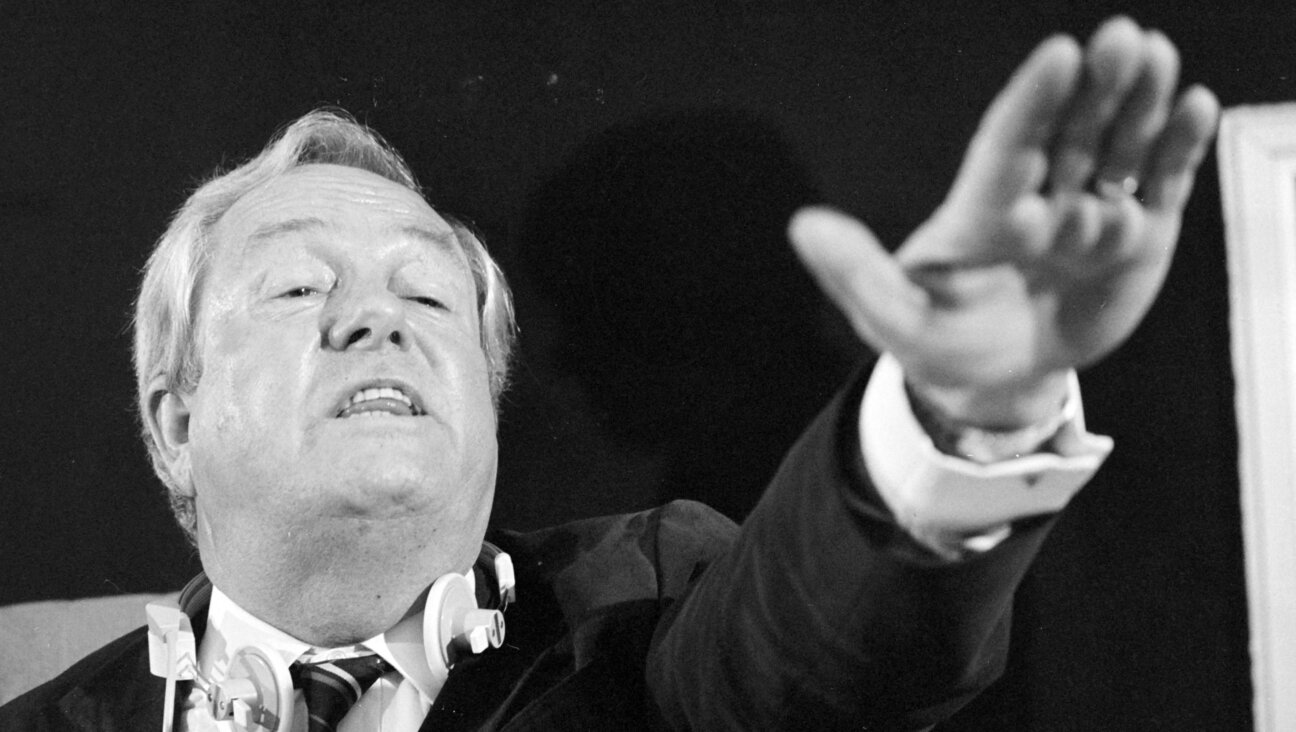Putting Israeli Diplomacy on the Couch
The Middle East is no stranger to mystery and intrigue, but now and then an enigma emerges that confounds even the wisest among us. Right now, for example, observers worldwide are scratching their heads and wondering what could have possessed Israel’s number-two diplomat to seat the Turkish ambassador on a whoopee cushion.
Well, it wasn’t exactly a whoopee cushion, but the idea was the same. On January 11, Turkey’s ambassador to Israel, Ahmet Oguz Celikkol, was summoned to the Knesset office of Deputy Foreign Minister Danny Ayalon to receive a formal protest. Israel was angered by a Turkish television miniseries that had depicted Israeli soldiers as murderous brutes. Ayalon’s job was to deliver the message. In an act rich with symbolism, he seated Celikkol on an uncomfortably low-slung sofa and then perched himself on a high-backed chair facing Celikkol, peering down at him and making him look like the ambassador from Munchkinland.
But that wasn’t all. In a devastating show of muscle, Ayalon saw to it that the coffee table between them sported a little Israeli flag with no Turkish flag alongside it, as protocol demands. Even more humiliating, no cookies or soft drinks were present and no coffee was offered. And, in a final twist of the knife, Ayalon invited in the press and pointed out on camera, in Hebrew, that the Turkish envoy was sitting lower than he was, that there was no Turkish flag or refreshments and that nobody was smiling. Take that, Your Excellency!
The gesture was intended to insult Turkey, and it succeeded. Turkey’s foreign ministry promptly threatened to recall its ambassador unless a full apology was given for the diplomatic breach. Israel issued a tepid apology, but Turkey wanted to hear from Ayalon personally. Ayalon resisted for two days, until Israeli President Shimon Peres phoned him and nudged him to bite the bullet. And so it was that Israel’s protest left Israel doing the apologizing, while the Turks walked away with one more item on their growing list of grievances: mistreating the Palestinians, continuing settlements, aggravating regional tensions — and now, stupid couch tricks.
Ayalon’s stunt was low farce, but the cost was high.
A militantly secularist republic, Turkey never joined the Arab-Muslim front formed against Israel after 1948. Instead, it cultivated a close web of political, economic and military ties with Israel. The friendship has endured for six decades, even after Turkey’s voters elected an Islamist government in 2002.
In the past year, though, something changed. Relations have frayed. The offensive Turkish television show was just the latest in an alarming series of slights from the country traditionally considered Israel’s most important Muslim ally.
Turkey lambasted Israel’s Gaza incursion a year ago, charging “crimes against humanity.” Turkish Prime Minister Recep Tayyip Erdogan stalked off a stage he was sharing with Peres at the World Economic Forum in Davos last January, after calling the Israeli leader a “barbarian” to his face. In October Turkey demonstratively barred Israeli participation in a routine NATO military exercise over Turkish airspace, leading to the operation’s cancellation. Most worrisome to Israel, Turkey has been cozying up to Iran.
By the beginning of this year, it was clear that Israel needed to act before things got worse. Accordingly, the Foreign Ministry acted, and sure enough, things got worse.
Which brings us to one of the biggest mysteries of the case. Ayalon is one of Israel’s most highly regarded diplomats, a former ambassador to Washington and senior diplomatic advisor to a string of prime ministers. He, of all people, should know that the diplomat’s job is to ease strains, not aggravate them. What possessed him?
One answer might be his boss, Foreign Minister Avigdor Lieberman. A Soviet-born rightist firebrand and former nightclub bouncer, he rose to become Prime Minister Benjamin Netanyahu’s first-term chief of staff before launching his own ultra-nationalist party.
On December 30, nine months into his awkward role as diplomat-in-chief, Lieberman announced a revised approach to diplomacy. Under his new “policy of national pride,” unveiled at an annual gathering of Israeli diplomats from around the globe, he proclaimed that “the era of groveling is over.”
“I have seen that some ambassadors identify themselves with the other side to such an extent that they are all the time trying to justify and explain,” Lieberman told the envoys, referring to the diplomatic practice of reporting back to their home government on the views and mood in their host country.
“There is no need to provoke or exaggerate, but there must not be an attitude of obsequiousness and self-deprecation, and the need to always justify the other side,” Lieberman said. “We will not seek reasons for confrontation and friction, but we will not turn the other cheek. There will be a response to everything.”
Translation: Diplomacy? Shaking hands and smiling at nogoodniks? Feh. I wanted to be minister of defense, or maybe police, where you get to beat people up. Instead, I’m surrounded by sissies who bow and drink tea. Well, that’s going to stop.
The rest was inevitable. Once Lieberman decided that Israeli diplomacy was going the mattresses, as the Godfather put it, the sofa was a natural place to start. Whose idea was the stunt? Ayalon told Yediot Aharonot it was his. Some of his friends and admirers say it’s so unlike the polished Ayalon that something else was going on. Perhaps he thought of it as a way to prove himself to his new boss. Or perhaps it was simply an order from the bouncer-in-chief, and as Herman Melville wrote, Ayalon was left to tell the tale.
Contact J.J. Goldberg at [email protected] and follow his blog at https://forward-hcl50.orc.scoolaid.net/opinion/
A message from our Publisher & CEO Rachel Fishman Feddersen

I hope you appreciated this article. Before you go, I’d like to ask you to please support the Forward’s award-winning, nonprofit journalism so that we can be prepared for whatever news 2025 brings.
At a time when other newsrooms are closing or cutting back, the Forward has removed its paywall and invested additional resources to report on the ground from Israel and around the U.S. on the impact of the war, rising antisemitism and polarized discourse.
Readers like you make it all possible. Support our work by becoming a Forward Member and connect with our journalism and your community.
— Rachel Fishman Feddersen, Publisher and CEO























